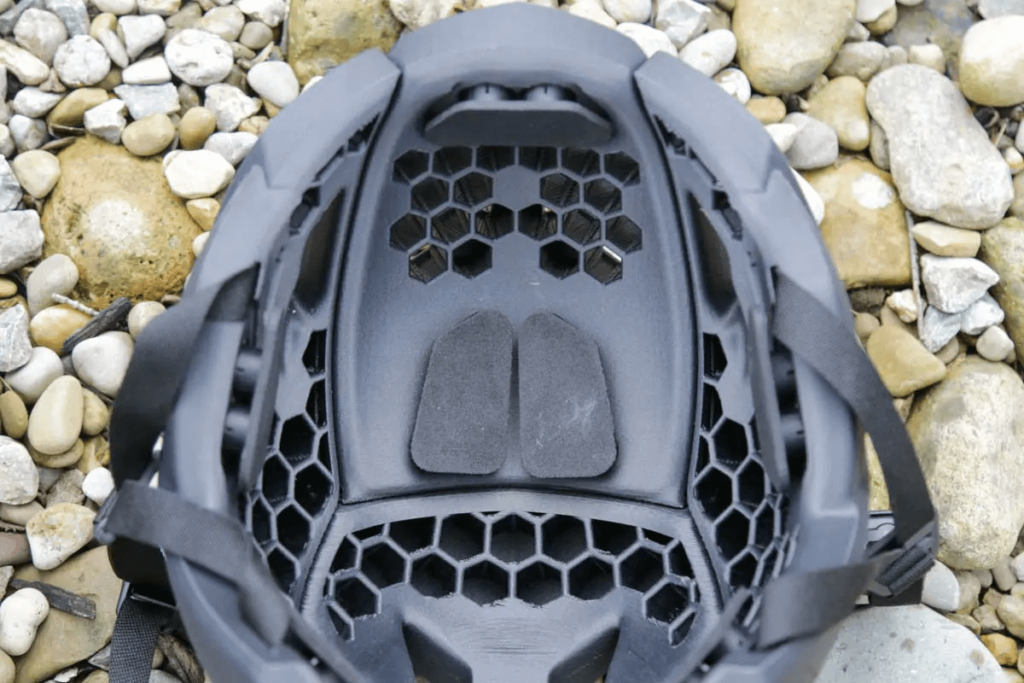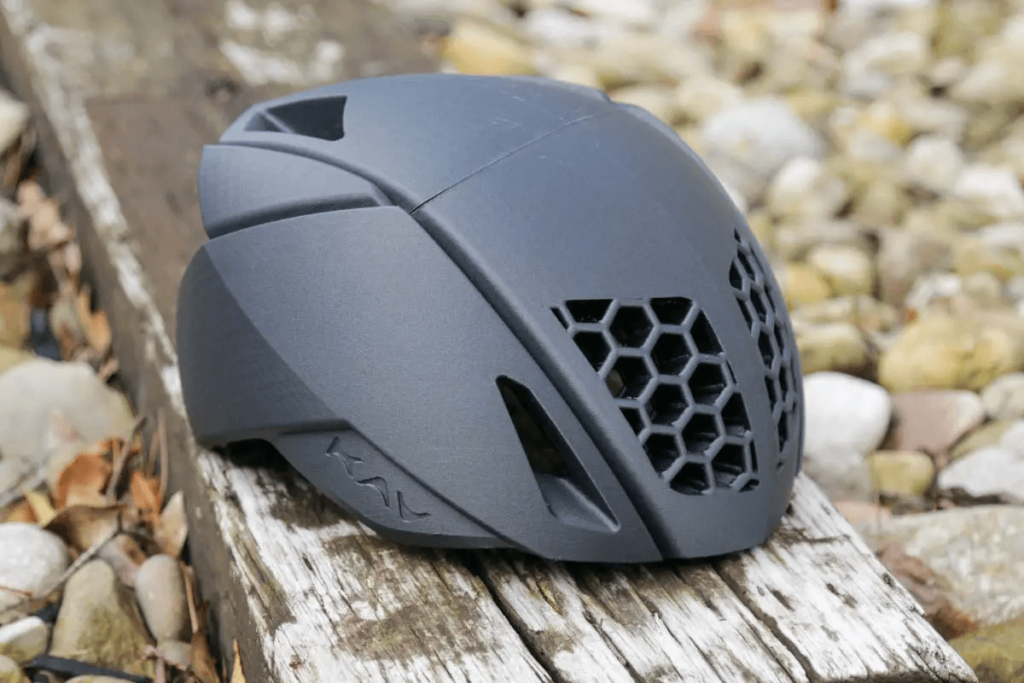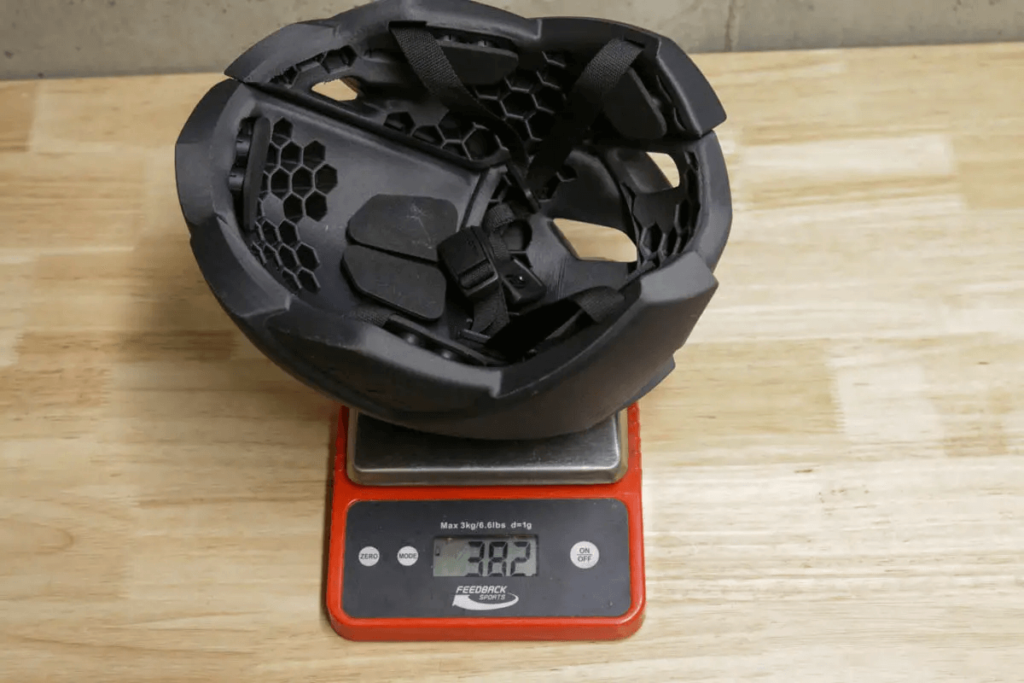PERSONALIZED 3D PRINTED CYCLING HELMET EXCEEDS SAFETY CRITERIA

Jabil Inc. (NYSE: JBL) has teamed up with KAV Sports to make customized, made-to-order cycling helmets that are more comfortable and safer. These helmets will be made using specially designed materials and additive manufacturing. The KAV Portola helmet, which was named by Time magazine as one of the "biggest innovations of 2022", is made of a proprietary carbon fiber nylon material developed by Jabil to meet strict performance and aesthetic criteria.
Whitman Kwok, founder and CEO of KAV Sports said the goal of the project is to save lives. KAV Sports wanted to design a better fitting helmet that people would want to wear. In order for customers to enjoy the benefits of customization, KAV had to overcome the limitations of materials and manufacturing. "Jabil has done this by creating a custom material that meets strict criteria and can be manufactured using 3D printing to create something truly unique and special for the helmet industry," said Kwok.

Developing the perfect fit
Traditional bicycle helmets are made of injection-molded expanded polystyrene (EPS) foam and come in one to three sizes, which are not enough to fit a wide range of head sizes and shapes. In addition, standard helmets lack stability, durability and comfort.
KAV wanted a lightweight material like EPS, but it also needed to perform well in temperatures from -15 degrees Celsius to over 60 degrees Celsius. KAV engineers looked at more than 20 commercially available materials, but none met the company's requirements of being able to absorb high-speed impacts and remain stable in bad weather.
KAV enlisted the help of Jabil in developing a material that is tough and durable, yet flexible enough to withstand both high and low temperatures. In addition to better energy absorption, the material needed better adhesion between its layers for consistent performance and a more pleasing appearance. In less than nine months, a group of additive manufacturing engineers, chemists, materials scientists and manufacturing specialists at Jabil's Materials Innovation Center in Minnesota came up with a brand new custom material that met all of KAV's needs.

Putting polymer science first
To reach this benchmark, Jabil implemented significant advances in material formulation, compound development, material systems integration and ISO 9001 accreditation for its quality management system.
Matt Torosian, Jabil's head of product management for additive manufacturing, explains, “We take a polymer science approach to additive materials development. Jabil designs materials that work with additive manufacturing processes in a repeatable way to meet customer requirements and produce the highest quality products.”
Jabil and KAV developed and tested up to thirty iterations of custom polymer formulations and compounds before creating a proprietary nylon-carbon fiber composite with all the required qualities. Jabil's expertise in material processing, testing and scalability were instrumental in creating the polymer, blending the final filament and achieving ISO 9001 quality management system certification.
KAV then went through the tests required by the US Consumer Product Safety Commission (CPSC) to be certified as safe. When KAV introduced the Portola helmet with the new material in April 2022, the company said the device not only met but exceeded US CPSC safety criteria for impact resistance by more than 25 percent.
Improving the customer experience

KAV's proprietary material is available in grey, black and white, giving customers plenty of choice. Custom-made helmets can be delivered in two to three weeks thanks to a simple customization and 3D printing process. These unique, energy-absorbing structures cannot be produced using conventional techniques. Additionally, additive manufacturing helps KAV Sports reduce production costs and waste.
As a result of its successful partnership with Jabil, KAV is looking to expand its product line and market reach. To do this, it will leverage Jabil's additive manufacturing expertise, global additive manufacturing capacity and a wide range of supply chain capabilities.
0 Comments